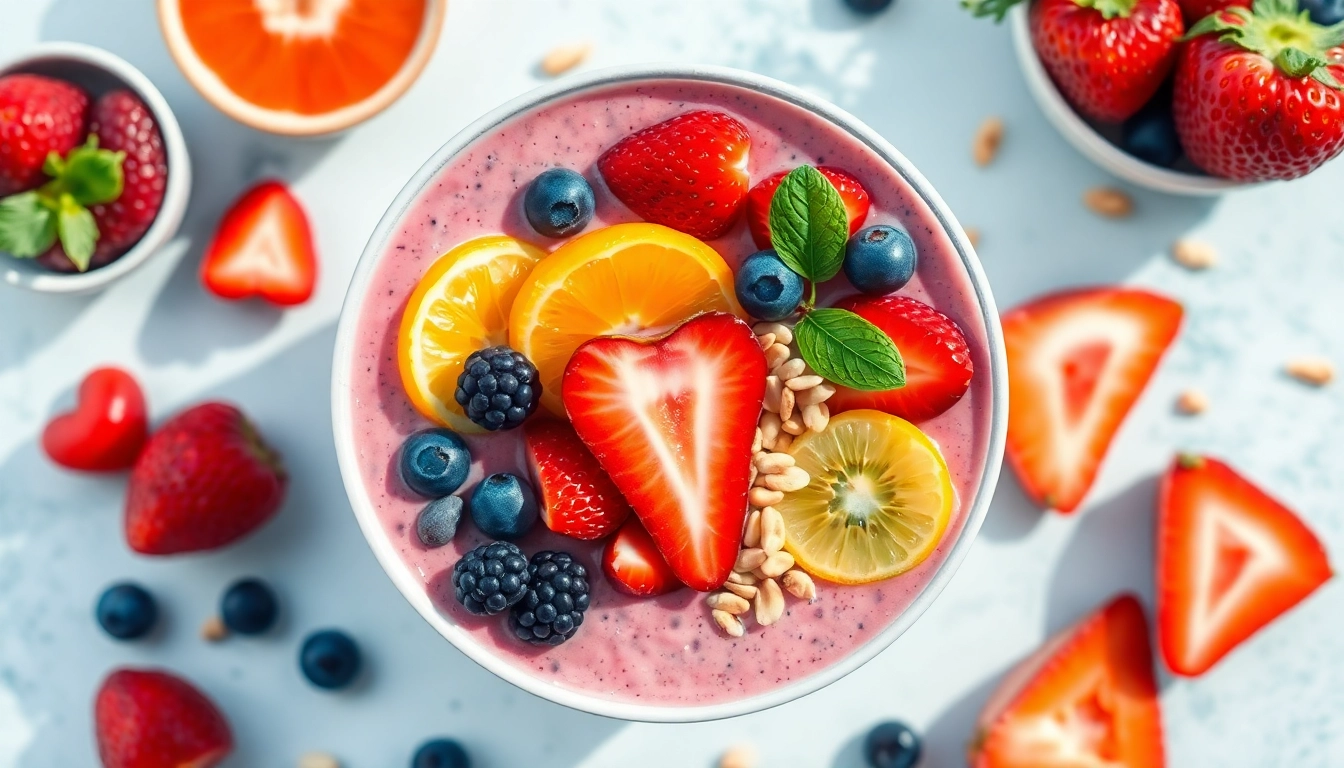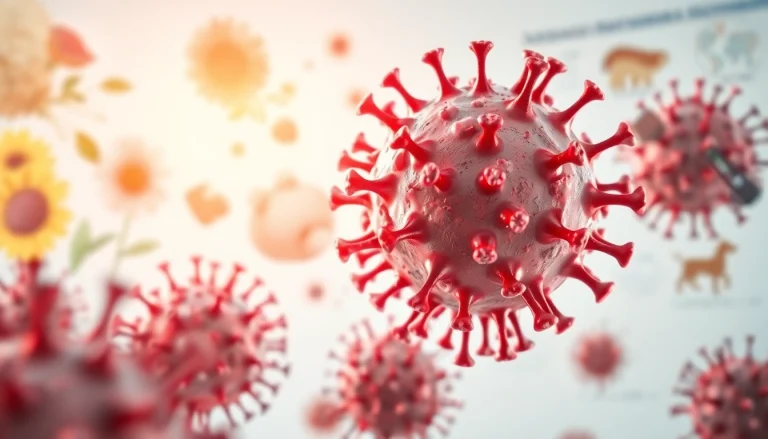Understanding Antioxidants: What They Are and How They Work
Definition of Antioxidants and Their Role
Antioxidants are naturally occurring compounds found in a wide array of foods, primarily in fruits and vegetables. They play a crucial role in protecting our bodies from oxidative stress. This stress is caused by free radicals—unstable molecules that can damage cells, proteins, and DNA. In essence, antioxidants scavenge these free radicals, neutralizing their harmful effects and helping to maintain our health.
According to research, including information from the antioxidants section of the Better Health Channel, antioxidants can significantly reduce cellular damage and may contribute to health benefits such as reduced inflammation and aging. They are not only pivotal in cellular defense systems but also contribute to overall well-being.
The Science Behind Free Radicals
Free radicals are highly reactive molecules that are produced during normal metabolic processes within the body as well as from environmental exposure, including pollution, radiation, and smoking. These molecules contain unpaired electrons, which makes them keen to react with other compounds, leading to a chain of cellular damage.
Oxidative stress occurs when there is an imbalance between free radicals and antioxidants in the body. An excess of free radicals can lead to damage of essential biomolecules, which in turn plays a significant role in various diseases, including cancer, cardiovascular diseases, and neurodegenerative disorders such as Alzheimer’s. Understanding the generation and impact of these free radicals is therefore essential for realizing the importance of antioxidants.
How Antioxidants Neutralize Damage
Antioxidants neutralize free radicals through various mechanisms, often through the donation of an electron to stabilize the free radical without becoming reactive themselves. There are several classes of antioxidants that include:
- Vitamins: Such as Vitamin C and Vitamin E, which are soluble in water and fat, respectively, and play distinct roles in neutralizing oxidative damage.
- Minerals: Selenium and manganese are vital for the function of antioxidant enzymes.
- Phytonutrients: These are plant-derived antioxidants, including flavonoids and carotenoids, which provide additional antioxidant capacity.
By quenching free radicals and preventing them from causing damage, antioxidants serve not only as a protective mechanism within the body but also as a vital component in promoting our long-term health.
Top Food Sources of Antioxidants
Fruits High in Antioxidants
Fruits are some of the richest sources of antioxidants. They are packed with vitamins, minerals, and various other health-promoting compounds. Some of the fruits highest in antioxidants include:
- Blueberries: Known for their high levels of anthocyanins, blueberries are hailed as one of the top antioxidant-rich fruits.
- Strawberries: These berries are also high in vitamin C and various phenolic compounds.
- Raspberries: Packed with fiber and vitamins, raspberries also feature high levels of antioxidants.
- Goji Berries: A superfood that contains a high concentration of antioxidants, including zeaxanthin and beta carotene.
- Blackberries: Rich in vitamins C and K, and various antioxidant compounds.
Vegetables Packed with Protective Compounds
Vegetables also offer a plethora of antioxidants. Incorporating a variety of them into your diet can significantly boost your antioxidant intake:
- Kale: This leafy green is rich in quercetin, an antioxidant known for its anti-inflammatory properties.
- Spinach: Loaded with vitamins, minerals, and flavonoids, spinach is another excellent source of antioxidants.
- Artichokes: Among the vegetables, artichokes have one of the highest antioxidant capacities.
- Beets: They contain betalains, which have antioxidant properties.
- Carrots: Rich in beta-carotene, this root vegetable also helps combat oxidative stress.
Herbs and Spices That Contribute
Beyond fruits and vegetables, certain herbs and spices are also potent sources of antioxidants:
- Cinnamon: Rich in polyphenols, it exhibits antioxidant activity.
- Turmeric: Contains curcumin, which is highly regarded for its antioxidant and anti-inflammatory properties.
- Ginger: Known for its gingerol content, which provides considerable antioxidant effects.
- Garlic: Contains sulfur compounds that have antioxidant properties and support cardiovascular health.
- Oregano: High in antioxidants, particularly rosmarinic acid.
Health Benefits of Antioxidants
Preventing Cellular Damage and Aging
One of the primary health benefits of antioxidants is their ability to combat the aging process by protecting cells from oxidative damage. This cellular protection can slow down signs of aging and decrease the risk of age-related diseases. Studies suggest that diets rich in antioxidants can lead to improved skin health, enhanced vision, and overall longevity.
Impact on Chronic Diseases
Many chronic diseases, including heart disease, diabetes, and cancer, have been linked to oxidative stress and inflammation. Antioxidants can reduce inflammation and lower the risk of these diseases by neutralizing free radicals. For instance:
- Cardiovascular Health: Antioxidants, such as those found in red wine (resveratrol) and dark chocolate (flavonoids), have been shown to improve heart health by reducing LDL cholesterol oxidation.
- Cancer Prevention: Research indicates that antioxidants may help inhibit the growth of cancer cells and stimulate the immune response against tumors.
- Neurological Health: Diseases like Alzheimer’s have shown to benefit from antioxidants due to their ability to protect neurons from oxidative damage.
Improving Immune Function
Antioxidants are crucial for a robust immune response. Nutrients such as vitamins A, C, and E, when consumed sufficiently, bolster the immune system, making the body more capable of fighting infections, viruses, and even chronic illnesses. Antioxidant-rich foods can enhance the efficacy of various immune cells, including T cells and macrophages, vital components that help defend the body against pathogens.
Integrating Antioxidants into Your Diet
Practical Tips for Eating More Antioxidants
Incorporating an array of antioxidant-rich foods into your daily diet can be simple and delicious. Here are some tips:
- Rainbow Diet: Consume a variety of fruits and vegetables with different colors. Each color represents different phytochemicals and antioxidants.
- Whole Foods Over Processed: Opt for whole foods rather than processed items, which often lack nutritional value.
- Herbs and Spices: Enhance your meals with herbs and spices, such as turmeric and cinnamon, to pack in extra antioxidants.
- Smoothies and Juices: Blend antioxidant-rich fruits with greens in smoothies for a nutrient boost.
- Snack Smart: Replace snacks like chips and candy with nuts, seeds, or berries.
Recipes Rich in Antioxidant Ingredients
Here are a couple of simple yet delicious recipes to integrate antioxidants into your meals:
- Berry Smoothie: Blend together a cup of blueberries, a banana, a handful of spinach, a tablespoon of flaxseed, and almond milk for a refreshing antioxidant-packed drink.
- Quinoa Salad: Mix cooked quinoa with cherry tomatoes, cucumber, spinach, and a dressing of olive oil and lemon juice, adding chopped nuts for extra texture and health benefits.
- Turmeric Chicken: Marinate chicken with turmeric, garlic, olive oil, and lemon juice, then grill or roast for a flavorful meal integrating several antioxidants.
Dos and Don’ts of Antioxidant Supplements
While it may be tempting to use antioxidant supplements, there are essential considerations:
Dos
- Try to obtain antioxidants from a natural food source first.
- Consult with a healthcare provider before starting any supplements.
- Stay informed about current research surrounding supplements for latest insights.
Don’ts
- Avoid high-dose antioxidant supplements, as excessive intake may lead to adverse effects and may negate the benefits.
- Do not replace healthy eating with supplements.
- Steer clear of supplements that contain unproven claims.
Current Research and Future Insights on Antioxidants
Latest Studies in Antioxidant Effects
Research is continually evolving in the field of antioxidants, showing promising links between their intake and numerous health benefits. Some recent studies show that certain antioxidants can enhance recovery times post-exercise and lower the risk of chronic diseases by maintaining cellular integrity.
Additionally, investigations are ongoing into specific antioxidant compounds, such as resveratrol, which is found in red wine and has been linked to improved heart health and longevity. Understanding how these compounds work at a molecular level can open up new avenues for preventive health interventions.
Potential Risks of High-Dose Supplements
While antioxidants are crucial for health, it’s important to remember that high-dose antioxidant supplements may pose risks. Research suggests that excessive amounts can potentially disrupt the body’s natural antioxidant defense mechanisms. For example, beta-carotene supplements have been linked with an increased risk of lung cancer in smokers. Therefore, integrating antioxidants through whole foods is widely recommended.
Future Trends in Nutrition and Antioxidants
In the future, we can expect significant advancements in the understanding of antioxidants in nutrition. There’s growing interest in personalized nutrition, where individuals receive tailored dietary recommendations based on their genetic expressions related to antioxidant metabolism. Furthermore, the role of antioxidants in combating chronic diseases is expected to become clearer, potentially influencing dietary guidelines
Moreover, as more research continues into new phytochemicals and their potential health benefits, the landscape of nutritional science surrounding antioxidants will continue to evolve.







